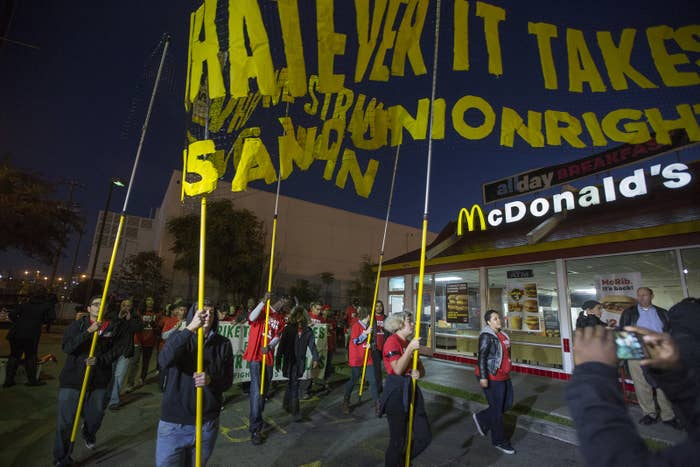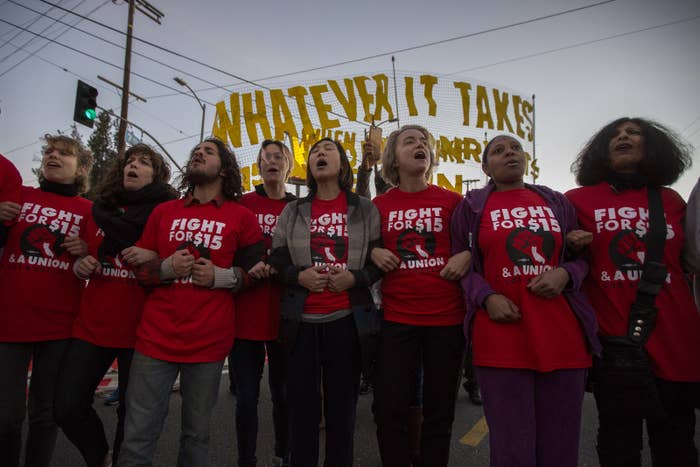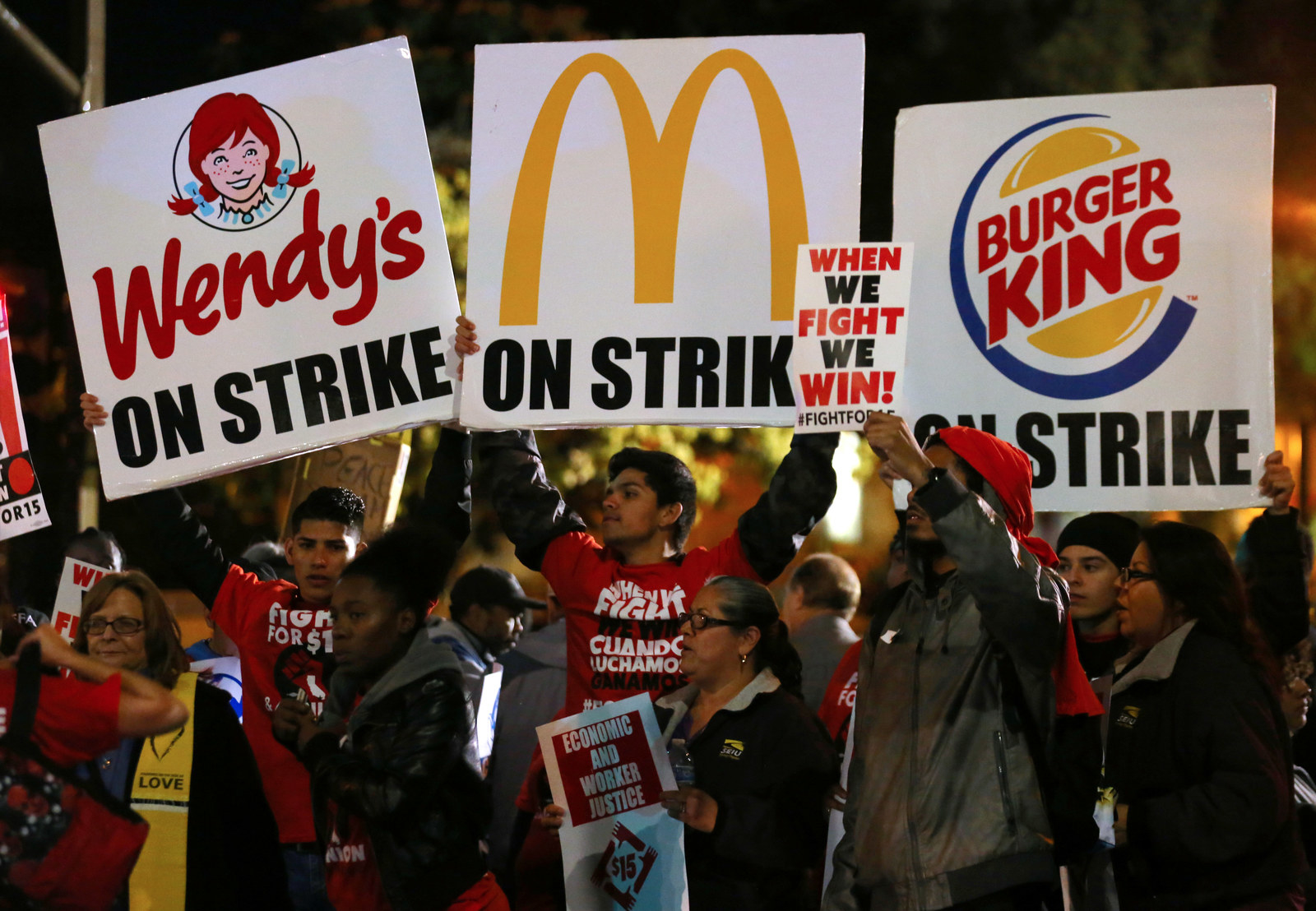
Groups representing fast-food workers would get a major financial boost under a proposed New York City law letting workers pay membership fees directly from their paychecks.
If it passes — and council members are confident it will — the law would require fast-food employers to automatically deduct fees from the paychecks of workers who choose to be represented. The money would go to a member organization of their choosing, tasked with advocating on the worker's behalf. It looks and sounds an awful lot like a union, in an industry where unionization is all but impossible under the current system.
The so-called "fissured workplace" of fast food, where individual restaurants are owned by franchisees, not the massive corporations that control them, makes unionizing the workers of any given restaurant chain extremely unlikely. Campaigners like the Fight For $15 minimum wage group have pushed to have companies like McDonald's legally classified as employers of the workers that run their restaurants — a crucial step in establishing a union to represent employees.
The proposal in New York would sidestep these obstacles. Should the bill pass, workers would be able to independently sign up for a third-party organization and pay recurring membership dues, just as they would with a union.
So why isn't it a union? Without going through the formal recognition process under federal law, the membership organizations cannot bargain collectively with a single employer to negotiate salaries and worker contracts. Instead, they could support fast-food organizing and lobbying efforts, such as the union-backed Fight for $15 movement, which has led strikes and protests across low-wage industries around the country for the past four years.
The bill's co-sponsor, City Council member Brad Lander, told BuzzFeed News he is “very optimistic” the law will will be passed by a supermajority of the council, given the left-leaning body's past support for other labor-friendly legislation.
Supporters of the bill say the New York proposal could form a model for other city councils looking to pass laws that support low-wage workers in fast food and other sectors.
It also hints at the future for labor activists in the Trump era. While Republican candidates skeptical of unions and minimum wage raises will soon control the federal government and a majority of state houses, America's biggest cities are still mostly led by Democratic mayors, often backed up by left-leaning city councils.
"The old National Labor Relations Board, Taft-Hartley model of worker organizing — Trump is going to come for it," said Landers. "It’s absolutely worth defending the rights of traditional employees to bargain collectively under the rules that we have, but we are at a moment when we need new models."

Fast-food workers who choose to be represented under the New York City proposal would be able to make tax-deductible contributions to worker groups directly out of their income, just as many workers currently pay for pre-tax transportation benefits. Employers would be required to honor requests to make donations directly from their pay.
The deductions will look more like recurring donations than union dues, with workers able to choose how much they wish to contribute from each paycheck. Organizations receiving the funds will need to be nonprofits, registered with the city's Department of Consumer Affairs, that advocate on behalf of workers.
The bill's passing would be the first step. Once it's approved, organizers will still need to convince fast-food workers to join a newly formed organization and contribute dues, just like old-school union organizers must. Helpfully, a network of fast-food organizers is well-established in New York, where the Fight For $15 movement began, and financially supported with millions from the heavyweight Service Employees International Union. Organizers have been holding meetings and trainings weekly for years across fast-food workplaces.
Jorel Ware, a Fight for $15 organizer who works at a McDonald's in Harlem, estimated dues could be as low as $3–$5 a week. The ballpark figure is similar to the dues paid by members of OUR Walmart, which asks workers at the retailer to contribute $5 a month to support the labor advocacy group.
"People want to know where their money is going and how it’s going and what it's going for," said Ware, who told BuzzFeed News the workers he has spoken to have been supportive of the proposal.
The City Council bill would be especially valuable, Ware said, because many fast-food workers, including himself, don't have bank accounts. If the money comes directly from paychecks, it makes managing recurring payments from thousands of members much simpler.

